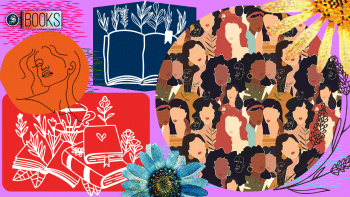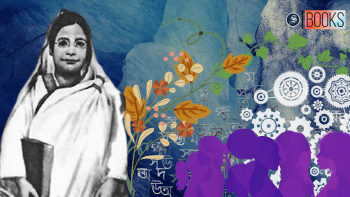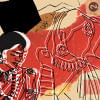Living a feminist killjoy life

In my journey of navigating life as a literature student, I often ask myself if what I am studying is something I'll be able to apply in my real life because theory and practice rarely go hand in hand. It's the conflicted headspace that one needs to come to terms with because words are safer in books than they are in real life—especially words like feminism that have so much weight attached to it. Among the many academic lectures on feminism that I've attended, its Sara Ahmed's work that most resonated with me, her book Living a Feminist Life (Duke University Press Books, 2017) is a testament to pointing out the collective relatability of issues at the heart of gender conditioning because to indeed be a feminist in this day and age is to truly understand the evolution of the movement and how fast it has become at "offending" people. Ahmed, in her book, says "Over time with experience you sense that something is wrong or you have a feeling of being wronged. You sense an injustice. You might not have used that word for it; you might not have the words for it; you might not be able to put your finger in it."
And perhaps this embodies a sense of shared relatability that has pervaded generations of women before us. A narrative that is often silenced by the patriarchy yet, somehow, resonates with us deeply.
Feminist killjoy, is a term coined by Ahmed in her book wherein she talks about the issues of voicing out against the normalised big words (outright sexism, discrimination, and the misogyny) that tend to disrupt the power dynamic of society which favors some and oppresses others. In other words, a black sheep in society's language that has to "nitpick" or "complain" (my favorite word) about topics that should be best left alone because they stir "unnecessary" discomfort among people.
I often thought maybe I was the problem for speaking out (as many would) because when you question a problem, you become the problem—with a voice that automatically deems unfit or unnecessary for a patriarchal society to function smoothly in subjugating the marginalised (read: women). This isn't a rant post as many will label it because after all women don't have any other work besides ranting and raving. I know, right?! But rather, in a larger context of the social fabric, my aim in writing about this topic that many, including myself, often tiptoe around is to create conversations that leads to genuine awareness so that the unnecessary stereotyping attached to it can take a back seat and discourses make its way to the frontline of the stage.
South Asian literature is filled with feminist stories voicing out the atrocities faced by women as opposed to society's denial of those issues. It not only worked as a portal for conversations to take place but also challenged society's hypocrisy and unjust norms. Rabindranath's Streer Potro is a masterpiece because of its cutting-edge storytelling masked by humor. It not only addressed sensitive issues such as mental health but also the very core of being a woman in a patriarchal setting that questions the subtle nuances of their position in the domestic sphere. The awakening of self-respect in the protagonist (Mrinal) and her finding ground as a writer gave her the strength to break free from the shackles that stopped her from accessing her worth. The idea of a woman not being submissive and choosing herself from own volition was written with such an empathetic touch that it left me feeling a sense of collective relatability.
Another groundbreaking story of a similar nature is that of Rokeya Sakhawat Hossain's short story "Sultana's Dream" (first published 1905) that challenges the double standard of a patriarchal society and tends to show a world of reversed gender roles where women have access to their rights (as it should be the case) and are no longer oppressed by men.
In both these stories the nuances of oppression might be different in action but the same in effect. It therefore questions the narrative of how a woman should live her life.
If we look into our own personal lives, it's often noticeable how certain conditionings are sown in our psyche very early on in our childhood. In the "Feminist Attachments" chapter of Cultural Politics of Emotion (Routledge, 2004), Sara Ahmed talks about how feminist voices are often silenced through an argument that reshapes our understanding of emotions. It addresses the issue of logic versus emotion that tends to create two segments—one that falls under the reasonable section and the other, "too emotional". It constructs a world in which any type of emotion is baleful for logic and reasoning and that the purpose of reason is far more superior to emotion. This hierarchical culture consisting of reason versus emotion reflects on our society as reason or logic is often associated with the superiors: the men (because they are dismissed from showing emotions, it's considered unmanly), and emotion being the inferior is addressed as a women's problem. The way we perceive the word "emotion" through the gendered lens contributes to systematic oppression because it dismisses those who fall under the umbrella of the emotional radar and it is easier to silence their voices as emotional beings because they are often, according to the patriarchal society, deemed as unstable, illogical, or disoriented.
We need to reimagine the normative framework of feminism and recuperate from our ignorant understandings of what it means to want a world where women aren't just seen as second class citizens but as an equal. So when you use the expression "you are such a feminist!" in a demeaning way for critiquing the patriarchy that contributes to the internalised micro-aggressions, it works to amplify not just inequality but forms of oppression for the marginalised section of the society. So, sure, I am a feminist. And you should be one too.
Sonan Tabindah is currently pursuing a Masters degree in English Literature. She writes to share, give in to her curiosity of discovering and deconstructing the world, and give her jumbled thoughts a safe space to reside.

 For all latest news, follow The Daily Star's Google News channel.
For all latest news, follow The Daily Star's Google News channel. 











Comments